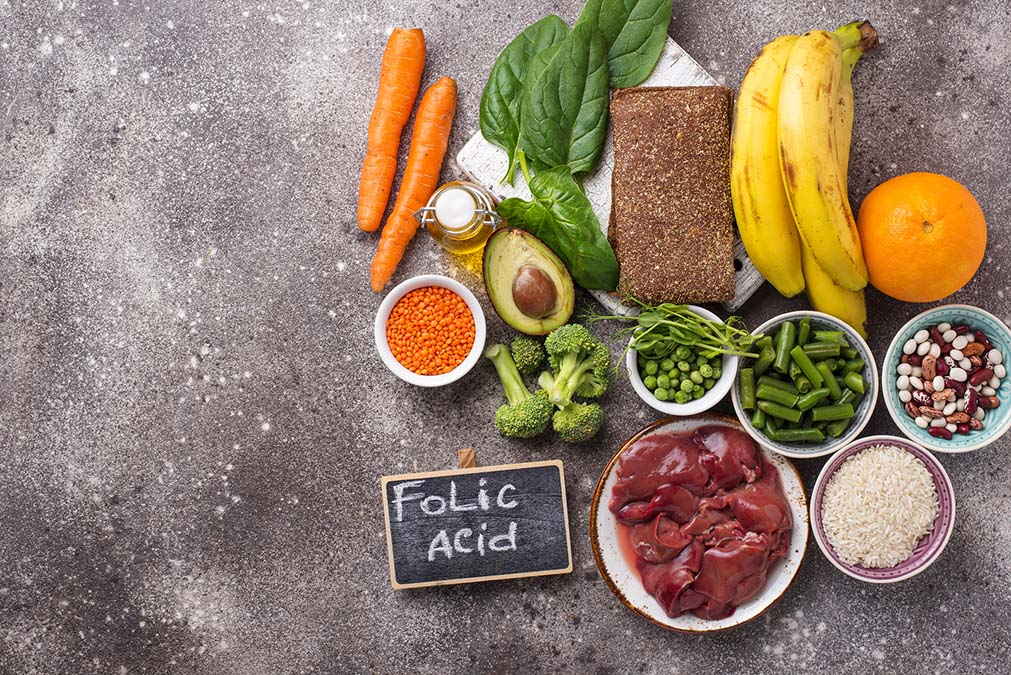 There are five stages of kidney disease.
There are five stages of kidney disease.
In stages 1-3, the people may not even realize they’re suffering from a dangerous disease. But when it progresses to stage 5, kidney failure is unavoidable.
So, it’s not so much about finding a cure for kidney disease as to finding a way to prevent it from progressing.
And a new study published in Preprints now reveals food a widely available food that prevents kidney disease from progressing to the next stage.
Kidney function is assessed via a measurement called glomerular filtration rate. It indicates the amount of blood filtered by the glomeruli per minute. The glomeruli are tiny capillaries in your kidneys that filter water and waste products out of your blood while retaining blood cells and other useful larger substances.
A score above 90 is normal, while a score below indicates some level of kidney dysfunction. This score drops naturally as people age.
Researchers wanted to find out whether folic acid could increase anti-oxidative activity and prevent deterioration in kidney function.
They wanted to know whether prominent antioxidative systems, PON1 activity and homocysteine levels in our blood could stop our glomerular filtration rate from dropping.
There were 113 participants who had been diagnosed with kidney disease at stages 4, 3b, and 3a. Stage 4 is very low kidney function with stage 5 signifying complete kidney failure.
The treatment consisted of three consecutive months of folic acid for one group, while the other group received no treatment.
Their study proved their hypothesis correct – folic acid prevented glomerular filtration rates from dropping further.
It even worked for stage 4 kidney disease sufferers. Best of all, it did not just prevent their kidney function scores from dropping, it also improved them.
Folic acid is almost exclusively sold as synthetic drugs that can have harmful side effects like numbness or tingling, mouth and tongue pain, weakness, confusion, hives, and nausea.
The best way to consume it is through food, where it is called folate or vitamin b9.
Foods especially rich in folate include beans, peas, lentils, asparagus, beets, eggs, citrus fruits, papaya, nuts, seeds, spinach, kale, Brussels sprouts, and broccoli.

 Overcoming IBD
Overcoming IBD Multiple Sclerosis
Multiple Sclerosis Banishing Bronchitis
Banishing Bronchitis Gum Disease Gone
Gum Disease Gone Overcoming Onychomycosis
Overcoming Onychomycosis Neuropathy No More
Neuropathy No More The Prostate Protocol
The Prostate Protocol Brain Booster
Brain Booster
 Ironbound
Ironbound
 Solution for Shingles
Solution for Shingles
 The Bone Density Solution
The Bone Density Solution
 The Ultimate Healing Protocol
The Ultimate Healing Protocol
 The Parkinson's Protocol
The Parkinson's Protocol
 The Chronic Kidney Disease Solution
The Chronic Kidney Disease Solution
 Overthrowing Anxiety
Overthrowing Anxiety The Fatty Liver Solution
The Fatty Liver Solution The Hypothyroidism Solution
The Hypothyroidism Solution
 The End of Gout
The End of Gout The Blood Pressure Program
The Blood Pressure Program
 The Oxigized Cholesterol Strategy
The Oxigized Cholesterol Strategy
 Stop Snoring And Sleep Apnea Program
Stop Snoring And Sleep Apnea Program
 The Arthritis Strategy
The Arthritis Strategy The Vertigo & Dizziness Program
The Vertigo & Dizziness Program The 3-Step Diabetes Strategy
The 3-Step Diabetes Strategy Hemorrhoids Healing Protocol
Hemorrhoids Healing Protocol The Erectile Dysfunction Master
The Erectile Dysfunction Master Weight Loss Breeze
Weight Loss Breeze The IBS Program
The IBS Program The Insomnia Program
The Insomnia Program The Migraine and Headache Program
The Migraine and Headache Program The Neck Pain Solution
The Neck Pain Solution The Menopause Solution
The Menopause Solution The Ejaculation Master
The Ejaculation Master The TMJ Solution
The TMJ Solution The Acid Reflux Solution
The Acid Reflux Solution The Fibromyalgia Solution
The Fibromyalgia Solution The Psoriasis Strategy
The Psoriasis Strategy